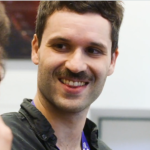PhD programme
We fund eight 4-year PhD students. In year 1, PhD students undertake mini-projects in order to gain postgraduate level knowledge and technical expertise and to develop intellectually. The training programme also involves integrated short courses, including new courses in Epigenetic Epidemiology and Metabolomics and Computational Medicine.
Based within the Integrative Epidemiology Unit, students and post-docs have access to a wide mix of expertise and collaborative opportunities, with training leads providing structured mentoring. We have an extensive pool of supervisors and all PhD students are co-supervised by more than one member of staff to provide optimal support and access to a wide range of skills and expertise. In the broader university research environment, trainees are supported by complementary PhD programmes and postdoctoral support systems as well as through dialogue with collaborators from other disciplines.
The University of Bristol provides outstanding facilities for students to conduct data-intensive research. The cross-faculty Jean Golding Institute is a central hub for data science, providing workshops and coordinating the university’s partnership with the Alan Turing Institute.
The post-PhD transition is important. We provide focussed skills training so that students can explore both academic and non-academic career options. We also work with the university’s Elizabeth Blackwell Institute to offer discipline-hopping fellowships and internships in a range of career paths.
ICEP also organises researcher exchanges with collaborators with funding from the University of Bristol’s Institute of Advanced Studies scheme.
Two students funded on the Integrative Cancer Epidemiology Programme (2015-2020) have recently been awarded PhDs:
James Yarmolinsky: "Identification of modifiable risk factors and mediation in the aetiology of ovarian cancer using novel causal inference methods".
Ryan Langdon: “The Effect of HPV Infection on DNA Methylation Patterns in Oropharyngeal Cancer”.
Over the course of my PhD, I gained a strong foundation in molecular epidemiological and causal inference methods applied to the study of cancer.
Undertaking a PhD in Cancer Epidemiology with the University of Bristol has allowed me to conduct cutting-edge work alongside world-leading researchers in a friendly and supportive environment. My time at Bristol has been invaluable for both my personal and professional growth.

